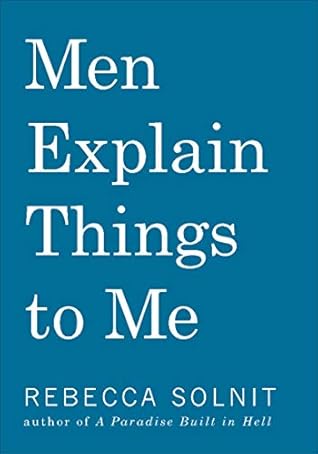More on this book
Community
Kindle Notes & Highlights
Revolutions were seizures of power by popular forces aiming to transform the very nature of the political, social, and economic system in the country in which the revolution took place, usually according to some visionary dream of a just society.
This was a revolution against state bureaucracies, and for the inseparability of personal and political liberation, whose most lasting legacy will likely be the birth of modern feminism.”
At my glummest, I sometimes think women get to choose—between being punished for being unsubjugated and the continual punishment of subjugation.
If ideas don’t go back in the box, there’s still been a huge effort to put women back in their place. Or the place misogynists think we belong in, a place of silence and powerlessness.
It described the double bind of women in that moment: they were getting congratulations for being fully liberated and empowered while being punished by a host of articles, reports, and books telling them that, in becoming liberated, they had become miserable; they were incomplete, missing out, losing, lonely, desperate.
“How can American women be in so much trouble at the same time that they are supposed to be so blessed?”
Gently, like a good friend, the Atlantic tells women they can stop pretending to be feminists now.
And the casual sexism is always there to rein us in, too: a Wall Street Journal editorial blaming fatherless children on mothers throws out the term “female careerism.”
‘Careerism’—the pathological need to have paid employment—is an affliction that only affects women, apparently.”
always assuming that each one’s ambition is not to be a great actress or singer or voice for liberty or adventurer but a wife and mother. Get back in the box, famous ladies.
They are trying to reassemble a world that never really existed quite as they imagine it (and to the extent that it did, it existed at the expense of all the people—the vast majority of us—forced to disappear, into the closet, the kitchen, segregated space, invisibility and silence).
It’s a war, but I don’t believe we’re losing it, even if we won’t win it anytime soon either; rather, some battles are won, some are engaged, and some women are doing really well while others suffer. And things continue to change in interesting and sometimes even auspicious ways.
American men are falling behind women in attending college, and have fallen farther in the current economic depression than women, which you’d think would make them interesting subjects of inquiry.
As could an inquiry into the men perpetrating most of the violence, the threats, the hatred—the riot squad of the volunteer police force—and the culture that encourages them. Or perhaps this inquiry has begun.
That policeman’s “slut” comment was part of the emphasis colleges have put on telling female students how to box themselves in safely—don’t go here, don’t do that—rather than telling male students not to rape: this is part of rape culture.
“They believed they had the right to have sex with the woman regardless of consent.” In other words she had no rights. Where’d they learn that?
Feminism, as writer Marie Sheer remarked in 1986, “is the radical notion that women are people,” a notion not universally accepted but spreading nonetheless.
The men who get it also understand that feminism is not a scheme to deprive men but a campaign to liberate us all.
There’s more that we need to be liberated from: maybe a system that prizes competition and ruthlessness and short-term thinking and rugged individualism, a system that serves environmental destruction and limitless consumption so well—that arrangement you can call capitalism.
Here is that road, maybe a thousand miles long, and the woman walking down it isn’t at mile one. I don’t know how far she has to go, but I know she’s not going backward, despite it all—and she’s not walking alone. Maybe it’s countless men and women and people with more interesting genders.
Here’s the box Pandora held and the bottles the genies were released from; they look like prisons and coffins now. People die in this war, but the ideas cannot be erased.


